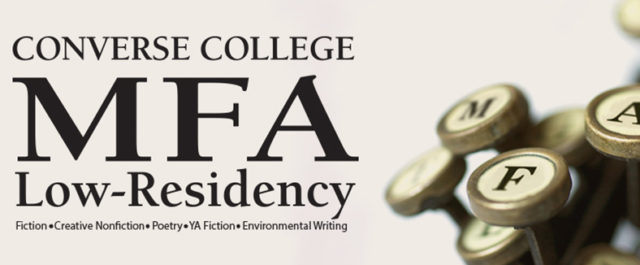Mel Sherrer
Devin Murphy’s debut novel, The Boat Runner, is forthcoming with Harper Perennial/Harper Collins on September 5th, 2017. This month, we sat down to speak with him about the impending work, writing and real life inspiration.
S85: Do you write every day or only when inspired?
DM: I try to write every day, but with constantly shifting family and work obligations, it doesn’t always happen. On days I can’t write, I try to edit or read something that will fuel my writing and keep inspiration close at hand.
S85: Is your novel The Boat Runner one of those books that “wrote itself,” that is to say, did you find the need to continuously prompt yourself to progress the story or did it simply unfold before you?
DM: This novel started when a secondary character in a short story became way more interesting to me than the story. At that point I kept giving myself little prompts, or questions to try to find out who he was and what he wanted, and following those answers led me through the first draft.
S85: Do you keep and notebook or a journal, where and how do you compile your thoughts for writing?
DM: When I was younger it was spiral bound journals, but that has moved into Word documents that span hundreds of pages. These serve to catch all the random moments or ideas that could function as seeds or scenes in potential stories. I have been known to write on my hand in a pinch, which I’m now painfully aware of as my small children hold up their marker covered palms and say, “Daddy, I’m working.”
S85: Do you write in drafts? How much do you usually write before you begin to rewrite?
DM: I often use my journals to gather moments and character sketches together and try to draft out complete stories. I have to go back endlessly to dig deeper, ask harder questions, and hunt for the true subject matter and voice to emerge. I use the same process for novels, but it takes much more endurance and patience.
S85: How would you say The Boat Runner is working as an “allegory of our time” to use Nickolas Butler’s words?
DM: I wrote about the terrible swell of nationalism in late 1930’s Germany, and how the rhetoric of that movement prompted action and dire consequence that shifted the world and displaced people from their homes. Now it seems those tricks of rhetoric are screaming back into our mainstream and we have exiles and refugees adrift on a mass scale once more.
S85: Would you say your writing has an emphasis on character or story?
DM: Story. I need to see an image or an action and then ask who to populate that action with.
S85: Are your characters based on observation?
DM: In part. I observe those around me, draft composites of people I know, and then put them in different scenarios until some unique essence finally emerges. Then, I can go back through the text and figure out how to make it that particular character’s story.
S85: How about your political views? Have they made any difference to you artistically or professionally in terms of your writing?
DM: When I was young, my father, a philosophy professor, gave me books about St. Francis and the Buddha, both compassionate beings who explored the world before casting judgments on others. I liked that model, and try to use it in my writing: don’t judge, try to understand. For years I wanted to know all about the craft of writing, my own heart, and the hearts of those I wrote about. Now I want to know about the workings of the world, so history and politics have become pillars of my writing.
Thanks, Devin!
About the Author
 Devin Murphy’s debut novel, The Boat Runner, is forthcoming with Harper Perennial/Harper Collins on September 5th, 2017. His recent fiction appears in The Chicago Tribune, Glimmer Train, and The Missouri Review, The Michigan Quarterly Review, and New Stories from the Midwest as well as many others. He holds an MFA from Colorado State University, a PhD from the University of Nebraska-Lincoln, and is an Assistant Professor of Creative Writing at Bradley University. He lives in Chicago with his wife and children.
Devin Murphy’s debut novel, The Boat Runner, is forthcoming with Harper Perennial/Harper Collins on September 5th, 2017. His recent fiction appears in The Chicago Tribune, Glimmer Train, and The Missouri Review, The Michigan Quarterly Review, and New Stories from the Midwest as well as many others. He holds an MFA from Colorado State University, a PhD from the University of Nebraska-Lincoln, and is an Assistant Professor of Creative Writing at Bradley University. He lives in Chicago with his wife and children.
About the Interviewer
 Mel Sherrer is a performance poet and teacher living in San Marcos, Texas. She is the Managing Poetry Editor for South 85 Journal.
Mel Sherrer is a performance poet and teacher living in San Marcos, Texas. She is the Managing Poetry Editor for South 85 Journal.
Featured Image Photo Credit: Photo by Alejandro Escamilla on Unsplash


 Marcy Posner’s editorial skill and a deep knowledge of the publishing industry sets her apart from many of her colleagues. When she work with authors, she focuses editorially on how to make the book as strong as it could be – whether that book be terrific women’s fiction or an extraordinary YA debut (or any of the other categories she represents). During that process, she is able to bring to bear all the institutional memory she possesses, knowing which editors and which publishing houses have a penchant for a certain subject, or a different voice, or a particular kind of author. Her clients include Newbery Honor winner and New York Times bestseller Jacqueline Kelly, New York Times bestseller Sheri Reynolds, autism advocate Christina Adams, Kristi Cook, Christopher Grant, Gretchen Kelley, Jerri Corgiat, former baseball pitcher Bob Tewksbury, and Marbles: The Brain Store among others.
Marcy Posner’s editorial skill and a deep knowledge of the publishing industry sets her apart from many of her colleagues. When she work with authors, she focuses editorially on how to make the book as strong as it could be – whether that book be terrific women’s fiction or an extraordinary YA debut (or any of the other categories she represents). During that process, she is able to bring to bear all the institutional memory she possesses, knowing which editors and which publishing houses have a penchant for a certain subject, or a different voice, or a particular kind of author. Her clients include Newbery Honor winner and New York Times bestseller Jacqueline Kelly, New York Times bestseller Sheri Reynolds, autism advocate Christina Adams, Kristi Cook, Christopher Grant, Gretchen Kelley, Jerri Corgiat, former baseball pitcher Bob Tewksbury, and Marbles: The Brain Store among others. Katie Sherman is a freelance journalist in Charlotte, NC. She is currently pursing an MFA degree at Converse College. She has an affinity for Southern Gothic literature, cider beer, Chicago, and morning snuggles with her girls — Ella and Addie.
Katie Sherman is a freelance journalist in Charlotte, NC. She is currently pursing an MFA degree at Converse College. She has an affinity for Southern Gothic literature, cider beer, Chicago, and morning snuggles with her girls — Ella and Addie.

 Josh Springs is a 3rd semester Converse College MFA student who writes YA, among other things. He tutors English in Taylors, SC.
Josh Springs is a 3rd semester Converse College MFA student who writes YA, among other things. He tutors English in Taylors, SC.

 Victoria Cappello was born and raised in Queens, NY, and graduated from the City University of New York, Queens College. Before joining
Victoria Cappello was born and raised in Queens, NY, and graduated from the City University of New York, Queens College. Before joining  Katie Sherman is a freelance journalist in Charlotte, NC. She is currently pursing an MFA degree at Converse College. She has an affinity for Southern Gothic literature, cider beer, Chicago, and morning snuggles with her girls — Ella and Addie.
Katie Sherman is a freelance journalist in Charlotte, NC. She is currently pursing an MFA degree at Converse College. She has an affinity for Southern Gothic literature, cider beer, Chicago, and morning snuggles with her girls — Ella and Addie.


 Jessica (Tyner) Mehta (Jey Tehya) is a Cherokee poet and novelist. She’s the author of four collections of poetry including Secret-Telling Bones, Orygun, What Makes an Always, and The Last Exotic Petting Zoo as well as the novel The Wrong Kind of Indian. Jessica is the owner of a multi-award winning writing services business, MehtaFor, and is the founder of the Get it Ohm! karmic yoga movement. Visit Jessica’s author site at
Jessica (Tyner) Mehta (Jey Tehya) is a Cherokee poet and novelist. She’s the author of four collections of poetry including Secret-Telling Bones, Orygun, What Makes an Always, and The Last Exotic Petting Zoo as well as the novel The Wrong Kind of Indian. Jessica is the owner of a multi-award winning writing services business, MehtaFor, and is the founder of the Get it Ohm! karmic yoga movement. Visit Jessica’s author site at 